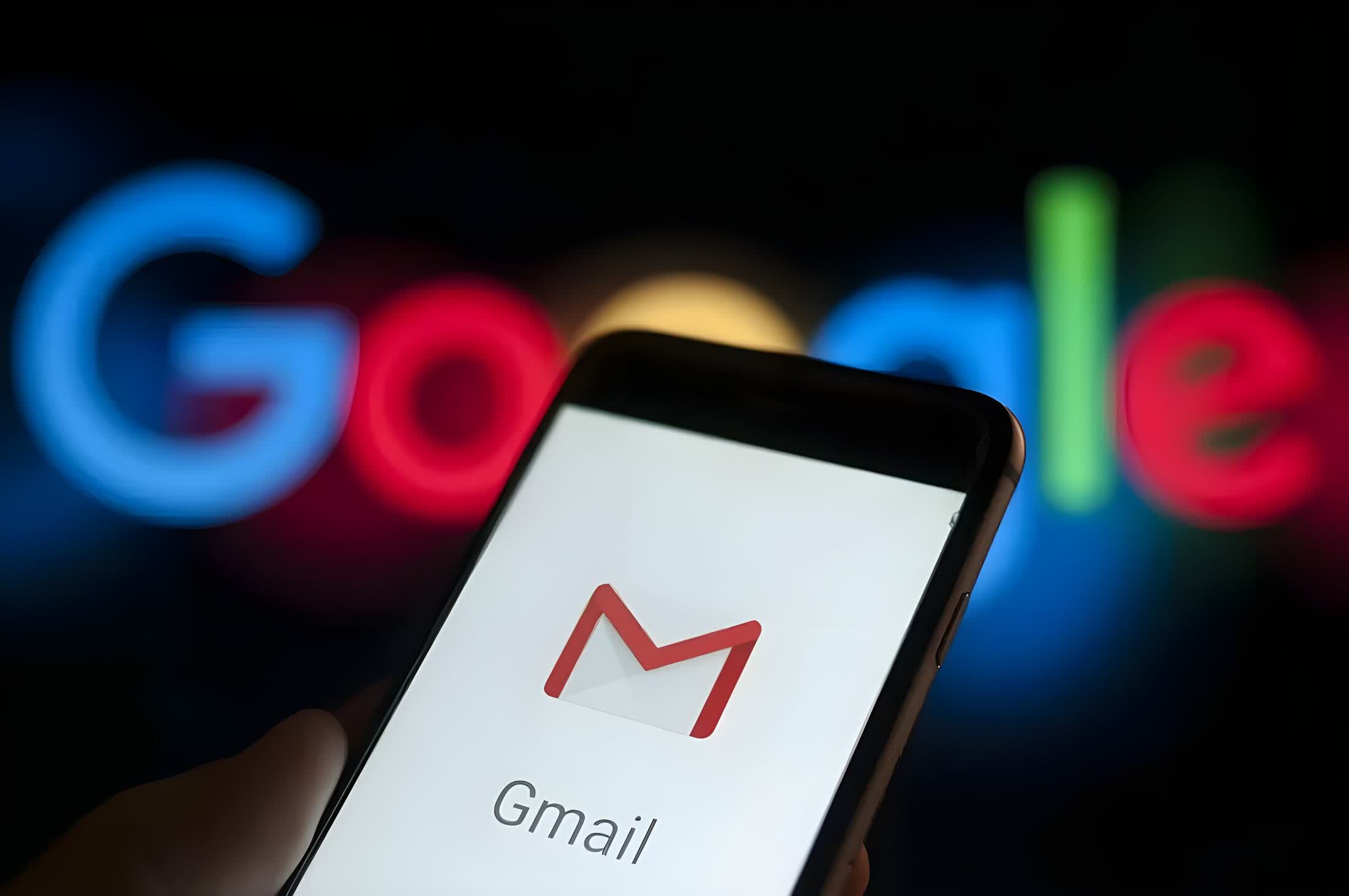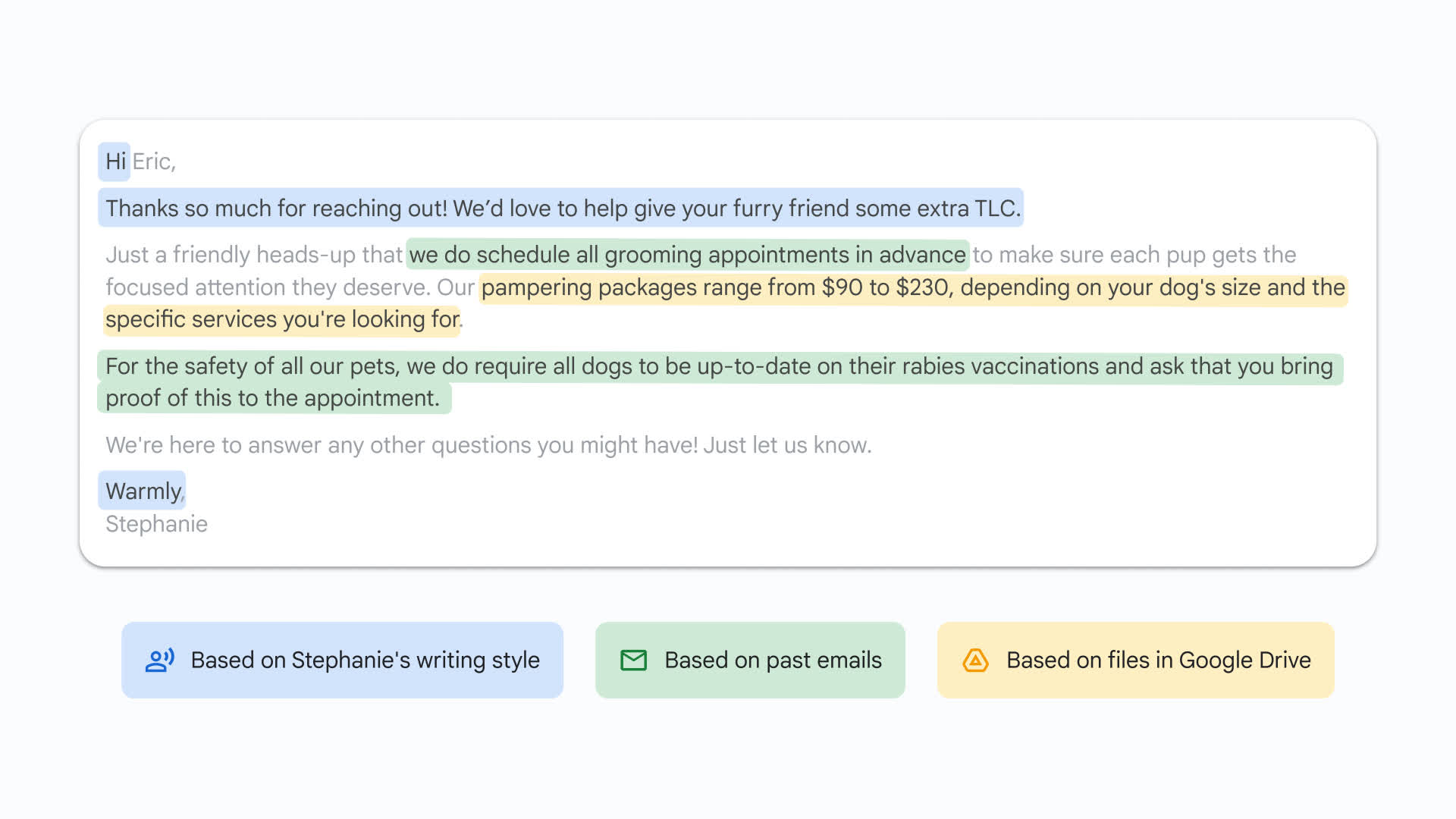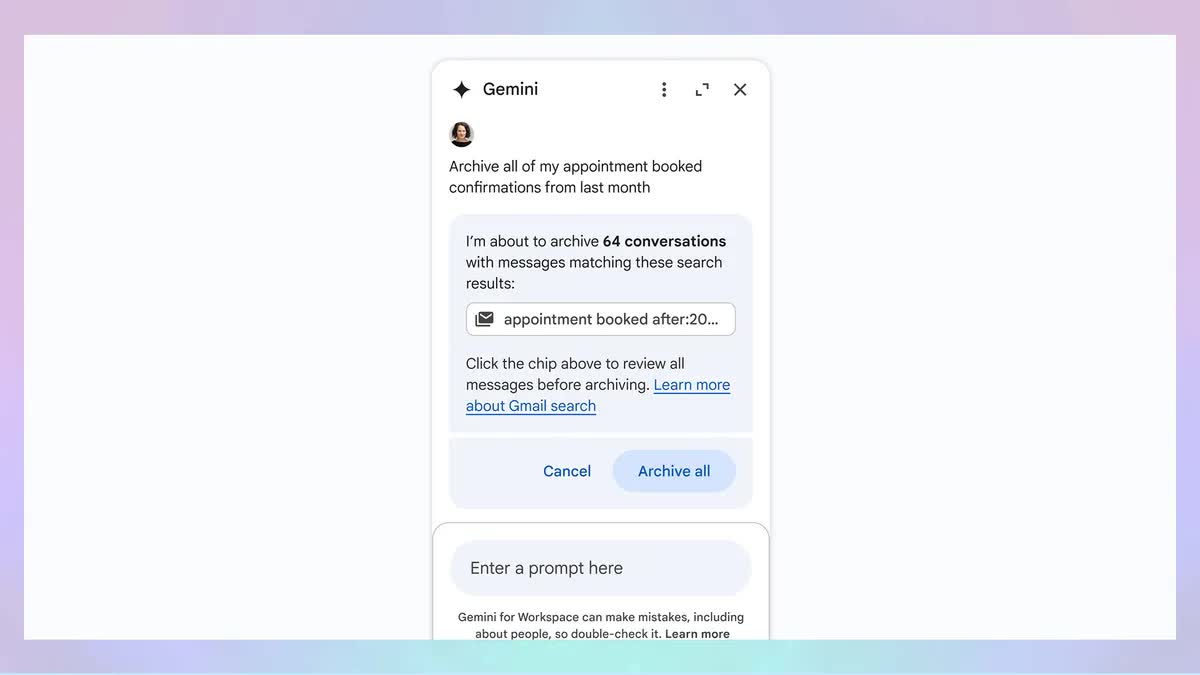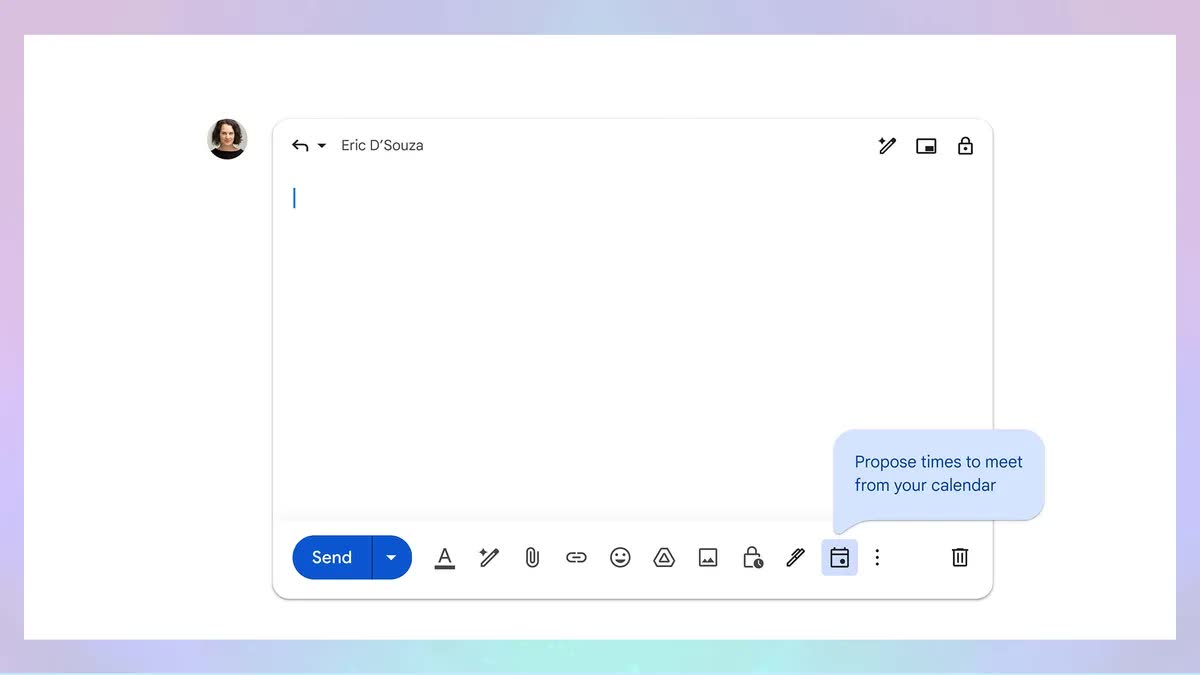In brief: A future in which generative AIs write emails back and forth to each other on our behalf has moved a little closer. Google is improving Gemini's smart replies, making them not only longer, but also more personalized by analyzing your previous emails and Drive files.
Google's new personalized smart replies are able to incorporate users' context and tone. As they are created by looking at past emails and Drive files – with a user's permission – the responses it offers can closely mimic the person writing the message.
The smart replies expand on last year's "contextual" upgrade, which used information from the current Gmail thread a person was in.
Showing off the change at Google I/O, CEO Sundar Pichai used an example of a friend writing to him for advice on planning a road trip from Colorado to Utah, a trip he remembered Pichai had previously taken. Gemini is able to look up notes on Drive, scan past emails for reservation details, and more. It can then generate a reply using Pichai's tone, style, and favorite word choices.
As you can see in the example below, Gemini's replies can potentially make up the majority of an email when there's plenty of information to draw from.
Google is also introducing a new inbox cleanup feature. It will let users tell Gemini to take specific actions using natural language, such as deleting all unread emails from a specific company last year.
An appointment scheduling feature is also coming to Gmail. This will let users share their booking pages in Gmail when Gemini detects that someone is organizing a meeting.
It'll be interesting to see how popular Gmail's new smart replies prove. People are rarely willing to grant systems full access to their personal data, as Microsoft's Recall nightmare proved, and we know that generative AI still has a bad habit of hallucinating a lot of stuff. Moreover, would the recipients be happy if they knew the person the were conversing with was using a bot to write 80% of their messages?
The new Gmail features will be available to Workspace subscribers this summer.



